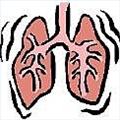 Bradypnea (slow breathing) was studied by researchers at the University of Florence, in Italy.
Bradypnea (slow breathing) was studied by researchers at the University of Florence, in Italy.
First, the details.
- 86 people with high blood pressure were randomly assigned to 1 of 3 treatment groups.
- Music-guided slow breathing exercises (4-6 breaths/minute; 1:2 ratio of inspiration:expiration duration)
- A control group taught to relax while listening to slow music.
- A control group taught to relax while reading a book.
- Patients were monitored at the start of the study and at follow-up visits (1 week and 1, 3, and 6 months).
- Systolic blood pressure monitoring was performed.
And, the results.
- Music-guided slow breathing exercise was associated with a significant reduction in 24-hour and nighttime systolic arterial blood pressure.
- The average reduction at 6 months with music-guided slow breathing was 5 and 4 mmHg vs the control-music and control-reading groups, respectively.
- Antihypertensive treatment tended to reduce the blood pressure lowering response to music-guided slow breathing.
- After adjusting for the effect of slow breathing and antihypertensive treatment, factors that significantly affected the blood pressure response included a general positive affect, emotional ties, and loss of behavioral control.
The bottom line?
The authors concluded, “Daily sessions of voluntary music-guided slow breathing significantly reduce 24-hour systolic arterial blood pressure, and psychological predictors of efficacy can be identified.”
These findings support an earlier study in 2001. Researchers at The Chaim Sheba Medical Center, in Tel-Hashomer, Israel, reported significantly greater reductions in systolic blood pressure (8 mmHg) with musically-guided breathing exercises vs 3 mmHg in the control group — a 5 mmHg difference.
A PubMed search revealed no other studies combining music with slow-breathing. Although researchers at Seattle University, in Washington reported that guided relaxation may be more effective in lowering blood pressure than plain music.
As an aside, ACE inhibitor drugs cause an 8-point reduction in systolic pressure, with most of that change achieved with the lowest recommended dose.
7/31/10 22:26 JR